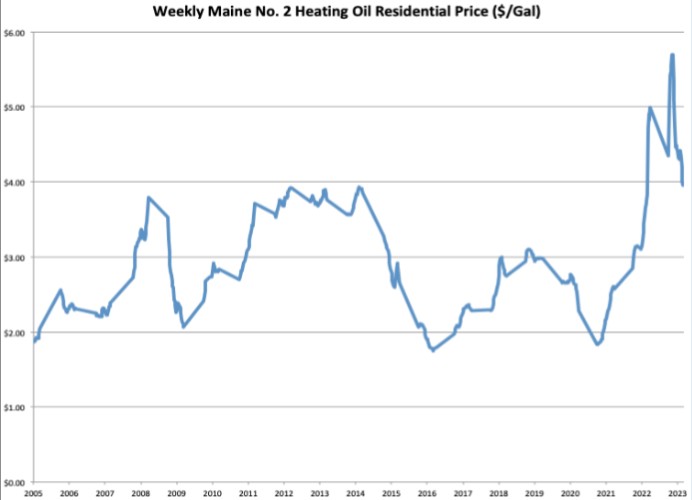This week, the Legislature will consider a fossil fuel pre-emption bill that would strip Maine’s communities of their ability to set policies that improve health, lower energy costs for residents, and tackle climate change with the urgency it requires. This bill would set back the progress we’ve made in creating new jobs from the state’s thriving clean energy economy.
Bills like this one are cynically framed as promoting “energy choice,” but the reality is quite the opposite. They seek to undermine Maine’s long tradition of home rule by taking away local self-determination. This approach originated with the tobacco industry as it sought to prevent cities and towns from limiting smoking and advertising to protect people’s health. Now it’s part of a concerted national legal strategy backed by the fossil fuel industry to hamstring the most cost-effective efforts to switch away from expensive oil and gas for heating our buildings.
Unfortunately, as of 2022, 20 states have adopted these fossil-fuel industry-backed bills. Here at the Natural Resources Council of Maine, we are going to work hard to make sure we are not the next state on this list.
States that have adopted fossil-fuel industry-backed pre-emption laws

Source: NRDC; Map: amcharts.com
Electrification of our homes, businesses, and transportation is central to Maine’s plan to meet our bipartisan climate action targets and prevent the impacts of climate change – that are already being felt from the shores of our lakes to our ocean coastlines – from getting much, much worse. Buildings are key because they last a long time, which means erecting new buildings and installing appliances that depend on polluting fossil fuels can lock in emissions for decades.
Switching how we heat our buildings – whether they’re schools, town halls, local businesses, or homes — and moving how we fuel our cars and trucks away from oil and gas toward clean electricity — has real benefits: lower costs, reduced air pollution, better health outcomes, and more resilient communities.
Fossil fuel prices are expensive and volatile. Sixty percent of Maine households still heat with heating oil, and Mainers have been paying record high prices, even as the industry and its investors are making record profits. This is unjust and unfair.

In the past few years, Maine has become a national leader in high-efficiency cold weather heat pump installations, which heat homes and businesses in our cold climate at the same or lower costs than gas, and much lower than other fossil fuel heating sources.
Heat pumps also avoid the very real health risks associated with burning fossil fuels inside the home. Burning gas for cooking and heating creates indoor air pollution including nitrogen dioxide (NO2), carbon monoxide, and formaldehyde, pollution linked to asthma in children and other health impacts. Studies show that natural gas in homes contained air toxics including carcinogens like Benzene.
Municipalities in Maine have every reason to take common-sense steps that will save their residents money and protect their health.
If local towns in Maine want to set standards for efficiency, health, or safety, they should be able to do so free from the interference of the Legislature. LD 894 would expose towns to expensive litigation for adopting a wide swath of policies and have a chilling effect on Maine communities’ ability to make their own choices on climate and energy.
If fossil fuel interests want to oppose local policies that impact their businesses, they are free to do so. But this bill cynically cloaks an effort to block local home rule in the language of choice and freedom. Legislators should see right through this ploy and reject this bill so we can make our communities healthier and cleaner and move forward in creating the good-paying jobs and other economic benefits that come from the transition to clean energy.
—Jack Shapiro, NRCM Climate & Clean Energy Director
Banner photo: solar array on closed landfill in Belfast, by S.Janeway/NRCM










Leave a Reply